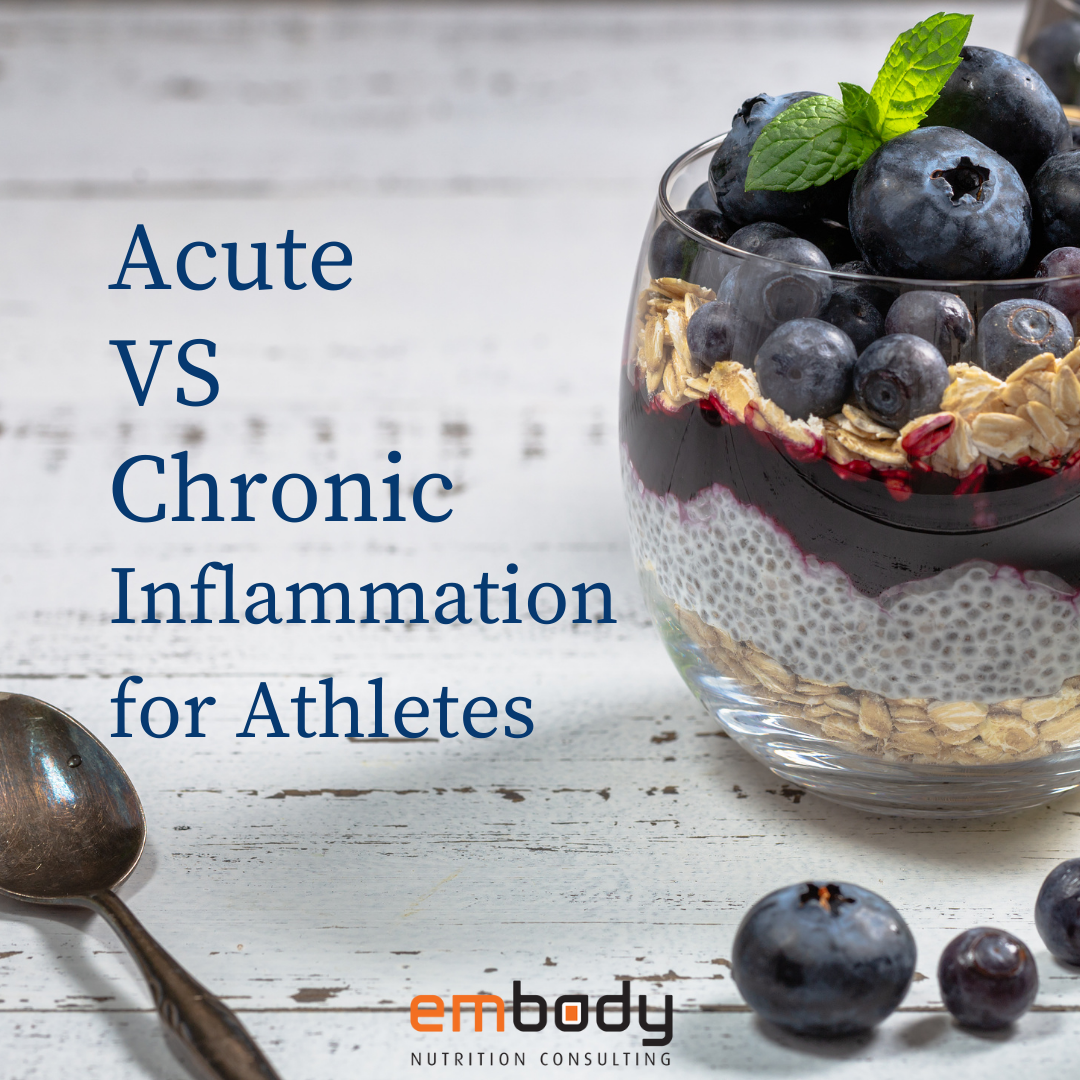Did you know inflammation is a very normal process and is not necessarily a bad thing? For athletes in particular though, it is important to understand why this occurs and how you can prevent it from becoming an issue, in order to ensure you can continue to perform at a high level.
Inflammation occurs after all types of physical activity, and is the body’s way of trying to protect itself from infection, trauma, toxins and physical stressors. Inflammation can result in increased body temperature, pain and blood flow to the injured area, which normally causes swelling.
Acute Inflammation
Physical activity of any kind, causes micro-tears within our muscles, which is known as acute inflammation. This type of inflammation is beneficial for increasing muscle mass, as our body’s inflammatory response helps to repair these micro-tears in our muscles, making them slightly stronger each time we exercise. This allows athletes to recover more quickly and therefore can adapt to more intense training schedules over time.
For this process to be effective, adequate recovery between training sessions is needed. This includes getting enough sleep, eating a balanced diet adequate in protein and carbohydrates and limiting inflammatory foods and beverages such as alcohol. If athletes do not prioritise their recovery, chronic inflammation can occur over time, as the body is becoming constantly worn down without being able to repair itself properly.
What is chronic inflammation?
Chronic inflammation is more common in athletes who undergo frequent, high-intensity, endurance training, as oxygen is relied on for energy. The oxidative nature of this activity causes the production of free radicals which are highly reactive, the process of which is known as oxidative stress.
Oxidative stress can cause an inflammatory response in the immune cells, and can lead to chronic inflammation over time, if adequate rest is not achieved between training sessions. It has also been shown through research that this type of exercise is linked with the prevalence of upper respiratory tract infections in athletes. This is not to say that all exercise is harmful, as performing regular physical activity with adequate rest and recovery is protective from oxidative stress.
Here are some strategies athletes can use to help decrease the risk of developing chronic inflammation, in order to continue performing at your best!
Get enough sleep.
The body repairs itself whilst you are sleeping, therefore ensuring you get at least eight hours of sleep a night is super important. And don’t be afraid to add in a short nap or two if needed.
Eat a balanced diet.
There has been research done into the benefits of the Mediterranean diet and its ability to protect against oxidative stress in a general population. Although there is not much research for athletes specifically, there is definitely no harm that will come from following this diet.
The Mediterranean diet is rich in fruits, vegetables, legumes, nuts, fish and whole grains, and is a great example of a well-balanced diet that could be used as a guide to ensure adequate nutrition is being reached. Additionally, athletes should ensure they are eating enough high quality protein, particularly after exercising as this will help the muscles to repair quickly, as well as limiting highly processed, packaged foods and alcohol where possible.
Include antioxidants foods
Antioxidants are known to protect the body from oxidative stress. Foods rich in phytonutrients such as fruits and vegetables (especially orange foods, as these are high in carotenoids) are high in antioxidants and vitamin C. Additionally, foods rich in vitamin E (avocados and nuts) as well as fatty fish, whole grains, leans protein sources and certain anti-inflammatory spices including turmeric and ginger can also be beneficial to reducing the risk of chronic inflammation.
Probiotics
There has been a lot of research done looking into the link between the gut microbiome and the inflammatory response. Extreme high-intensity endurance exercise can cause our immune system to weaken. Due to more oxygen being used to complete this type of activity, less oxygen is able to reach the cells in the gut. This also means that nutrients being transported in the blood along with the oxygen, are not getting to these cells.
A healthy immune system is maintained by having a healthy gut microbiome, and this may be enhanced by taking probiotics. Probiotics can enhance the gut barrier by reducing the space between cells in the gut wall, as well as increasing the production of SCFA (check out this article to learn about these), both of which reduce the chance of inflammation.
So although acute inflammation is quite a normal, beneficial process, chronic inflammation can cause some real damage to an athletes’ body. Ensuring you have adequate rest and recovery between training sessions, eating a nutritious and well balanced diet and getting adequate sleep are all key to decreasing the risk of developing chronic inflammation.
Need help optimising your recovery from training? Get in touch today to see how we can help you.

